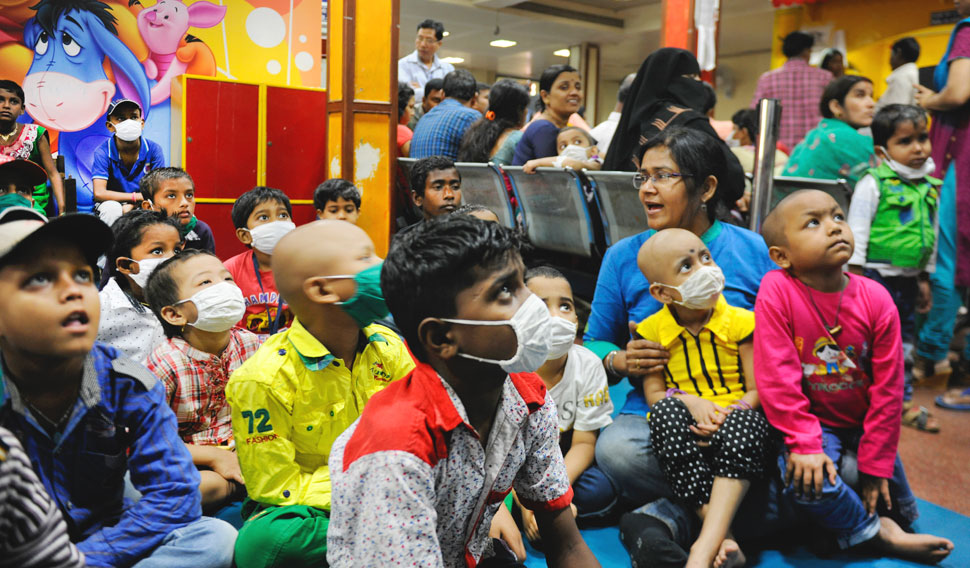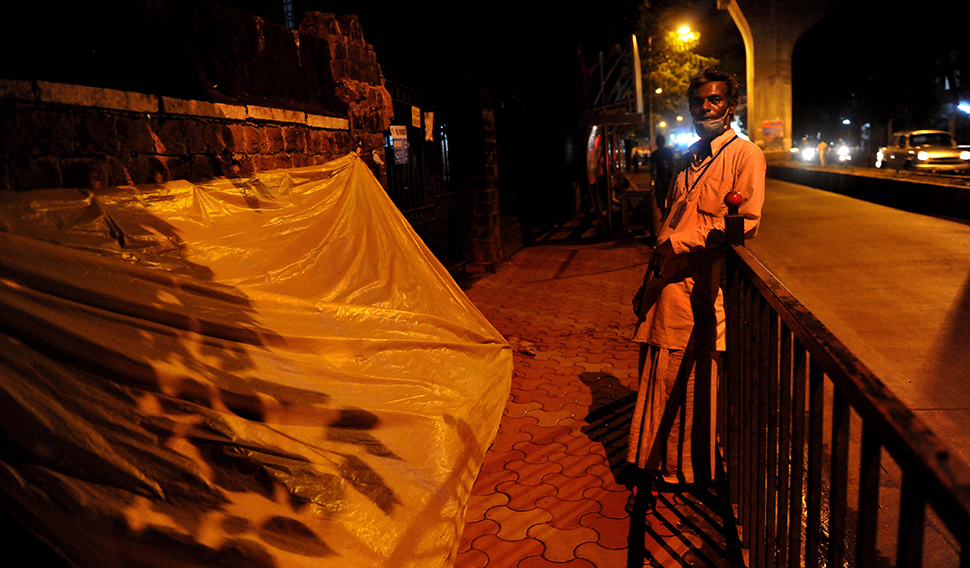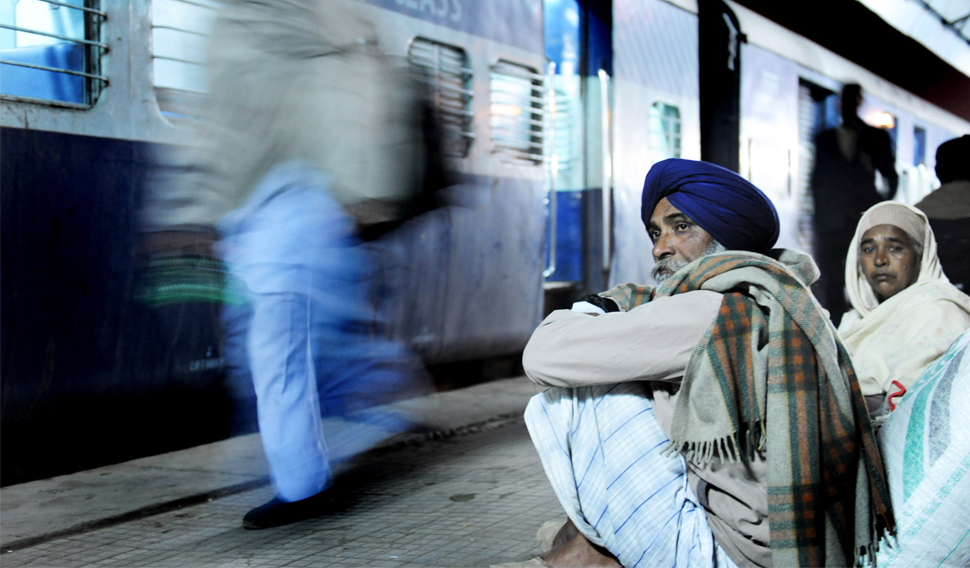
DIET
Eating right is critical

Meeta Lall
February 3, 2015

While there is no specific ‘cancer diet’, food requirements change as treatment continues
Nutrition becomes particularly important during cancer. Cancer greatly affects the ability to eat food; even if the person appears to be eating well, the body may not be able to absorb and use the nutrients in food. Also, food smells and tastes different. Treatment may cause trouble in swallowing, mouth sores, nausea, vomiting, diarrhoea and/or constipation. Pain, anxiety and depression make eating a tough proposition. Weight loss, weakness and tiredness are common.
Eating right thus becomes critical to prevent muscle and bone loss; keep up strength and energy; help the body recover, heal and fight back infection. Even the treatment works better when the patient is well nourished. Chances of recovery increase and quality of life improves. Good nutrition continues to be important even when the cancer has been cured.
While there is no specific ‘cancer diet’, food requirements change as treatment continues. Side-effects of chemotherapy need special attention. It is best to nurture a friendly relationship with the nutritionist who can make dietary adjustments as treatment progresses.
Since cancer makes the body particularly vulnerable to infections, food and drink should be hygienically prepared and well cooked. Avoid leftovers and processed meats such as sausages, ham, salami, canned meat and raw eggs/fish.

Chemotherapy reduces appetite. It is best to eat small meals often rather than trying to eat larger main meals. Make every bite count–choose high calorie and high protein foods such as whole milk, paneer, ice cream, peanut butter, eggs and red meat. Add extra calories with butter, sugar and honey. Bournvita, Horlicks, Boost in milk add further richness. Use more fats and oils in cooking; lots of butter and cheese on sandwiches; add ghee tadka to dals and curries. Nutritious drinks inbetween meals help. While readymade liquid meals in different flavours are available with chemists, you can put together your own favourite high calorie milk shake, eggnog, smoothie, juice, or for a salty taste, a rich soup. It helps to keep nutritious snacks on hand at all times–nuts, sweet/salted biscuits, roasted grams etc. Watching TV or listening to music while eating diverts attention and may increase the intake.
Cancer causes extreme breakdown of muscle; combined with infections, energy and strength dissipate. The diet needs to include more protein from pulses, milk (and milk products like cheese, paneer, curd, khoya etc.) and nuts. For non-vegetarians, eggs and meat/chicken/fish are great sources of good quality protein. A bowl of dal with every meal or dal added to soup/ sandwich/parantha is important. Add on milk and curd to all meals; paneer and cheese are concentrated sources of protein. If non-vegetarian, it is okay to eat meat, chicken or fish for dinner every day. Add protein powders to milk, shakes, yoghurt and smoothies.
Immunity needs a special boost during cancer. Fruits are rich in antioxidants; 2-3 fruits every day are recommended. Fruit juice give a potent shot of antioxidants. Eat plenty of vegetables. Consult your doctor for vitamin and mineral supplements.
Other side effects of therapy–nausea, vomiting and pain–may prevent adequate intake of water and fluids. Tiredness is the first sign of dehydration. A cancer patient needs to drink at least 8 to 12 glasses of water/milk/juice every day. But stay away from caffeine drinks such as sodas, coffee and tea.

The diet essentially needs to address the symptoms due to cancer and its therapy. Given below are dietary tips for common problems arising in cancer.
Difficulty in swallowing: Eat foods which go down easier–nutrient-rich milkshakes, soups and broths, fruit juices and porridge. Chew solid foods thoroughly.
Nausea and/or vomiting: Avoid hot and spicy foods as well as greasy or fried foods, very sweet, sugary foods and foods with strong smells (onion/garlic/red meat/etc). Also, do not drink beverages with meals and avoid lying down after a meal. Rinse your mouth with lemon water after eating. Suck on ice cubes, mints, or hard candies.
Diarrhoea: Diarrhoea may be caused by cancer treatments, surgery on the stomach or intestines, or by emotional stress. Drink plenty of fluids during the day. Liquids at room temperature may cause fewer problems than hot or cold liquids. It may be best to avoid foods rich in spices, fats, sugar and fibre. Do not have milk-based drinks or beverages containing caffeine (coffee, strong tea, soda, and possibly chocolate). Try a low-fibre diet such as rice, moong dal, bananas, white bread, oatmeal, mashed potatoes, and skinless/boneless chicken). Also drink plenty of fluids.
Constipation: Too little water or fibre in the diet, inactivity and chemotherapy and medicines usually cause constipation during cancer. Eat plenty of fibre-containing foods such as whole grain atta, pulses with husk and vegetables. Try adding wheat bran to the diet; begin with 2 heaping tablespoons each day for 3 days, then increase by 1 tablespoon each day until constipation is relieved. You may use over-the-counter bulk forming products. Stay physically active, walk regularly.
Chemotherapy reduces appetite. It is best to eat small meals often rather than trying to eat larger main meals.
Mouth sores and infections: Caused by chemotherapy and radiation therapy, mouth sores can be painful and become infected or bleed and make it hard to eat. Eat soft foods that are easy to chew and swallow such as soft fruits, including bananas, sapodilla (chikoo), peaches and watermelon. Mashed boiled potatoes, paneer, curd, custards, khichdi, milk shakes and scrambled eggs are easy on the sores. Avoid citrus fruits and juices, spicy or salty foods as well as rough, coarse or dry foods, including raw vegetables, granola, toast, and crackers. It is also important to clean teeth and rinse mouth at least four times a day.
Taste changes: Many cancer patients receiving chemotherapy notice a bitter taste or other changes in their sense of taste. A sudden dislike for certain foods may occur. Eating small meals helps. Eat meals when hungry rather than at set mealtimes. Eat favourite foods and try new foods when feeling best. Eat poultry, fish, eggs, and cheese instead of red meat. Eat citrus fruits (oranges, tangerines, lemons, and grapefruit) unless mouth sores are present. Add onion/garlic, spices and sauces to add flavour to foods. Eat meat with something sweet, such as cranberry sauce, jelly, or applesauce. Use sugar-free lemon drops, gum or mints if there is a metallic or bitter taste in the mouth. Rinse mouth with water before eating.
Q&A with Dr. Jame Abraham

Dr. Abraham is the director of the Breast Oncology Program at the Taussig Cancer Institute, US
What screening options are available for cervical cancer?
Development and widespread use of pap smear is one of the most important success stories in cancer detection and prevention.
For more, click here

